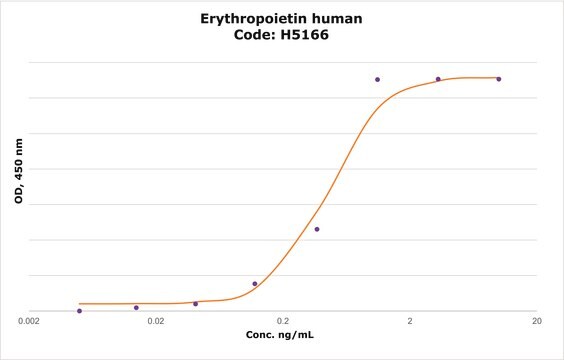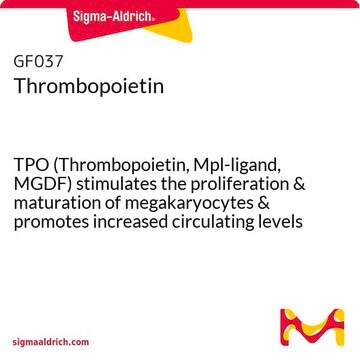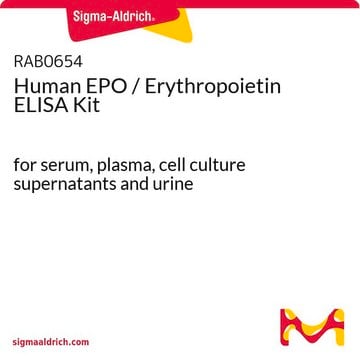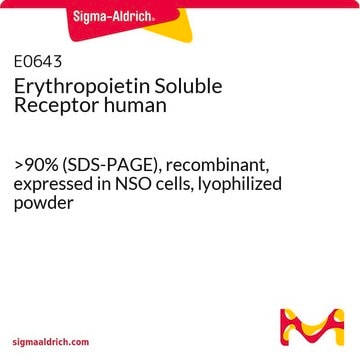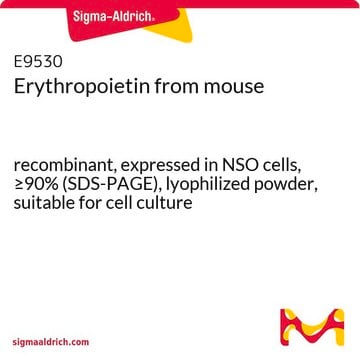SRP6158
EPO human
recombinant, expressed in HEK 293 cells, ≥95% (SDS-PAGE)
Synonyme(s) :
EP, EPO-alpha, Epoetin, Erythropoietin-alpha, MGC138142
About This Item
Produits recommandés
Source biologique
human
Produit recombinant
expressed in HEK 293 cells
Pureté
≥95% (SDS-PAGE)
Forme
lyophilized
Poids mol.
36 kDa (monomer, glycosylated)
Conditionnement
pkg of 10 μg
Technique(s)
cell culture | mammalian: suitable
Numéro d'accès NCBI
Numéro d'accès UniProt
Conditions d'expédition
dry ice
Température de stockage
−70°C
Informations sur le gène
human ... EPO(2056)
Description générale
Application
- EPO (erythropoietin) has been used as a component of the culture medium for cardiac stem cells.
- In cultured cerebellar granule cells and hippocampal neurons, it has been used to study effect of EPO on glutamate release.
- It has also been used as a component of endothelial differentiation medium.
Actions biochimiques/physiologiques
Forme physique
Notes préparatoires
Reconstitution
Code de la classe de stockage
11 - Combustible Solids
Classe de danger pour l'eau (WGK)
WGK 3
Point d'éclair (°F)
Not applicable
Point d'éclair (°C)
Not applicable
Certificats d'analyse (COA)
Recherchez un Certificats d'analyse (COA) en saisissant le numéro de lot du produit. Les numéros de lot figurent sur l'étiquette du produit après les mots "Lot" ou "Batch".
Déjà en possession de ce produit ?
Retrouvez la documentation relative aux produits que vous avez récemment achetés dans la Bibliothèque de documents.
Les clients ont également consulté
Notre équipe de scientifiques dispose d'une expérience dans tous les secteurs de la recherche, notamment en sciences de la vie, science des matériaux, synthèse chimique, chromatographie, analyse et dans de nombreux autres domaines..
Contacter notre Service technique